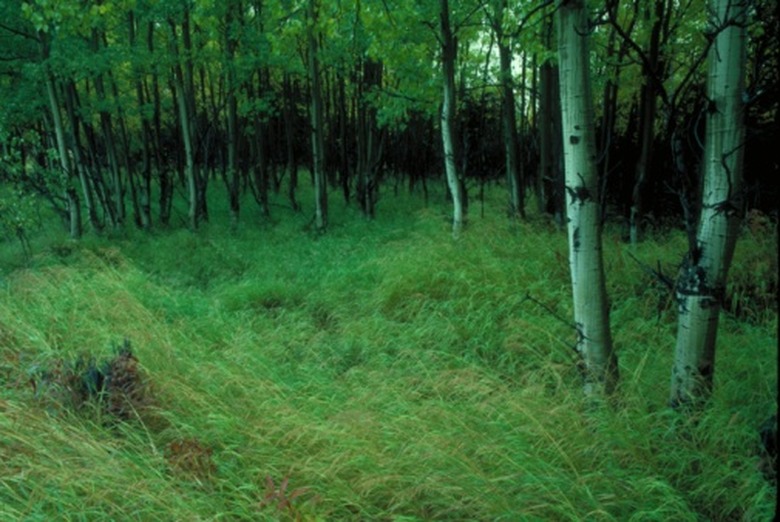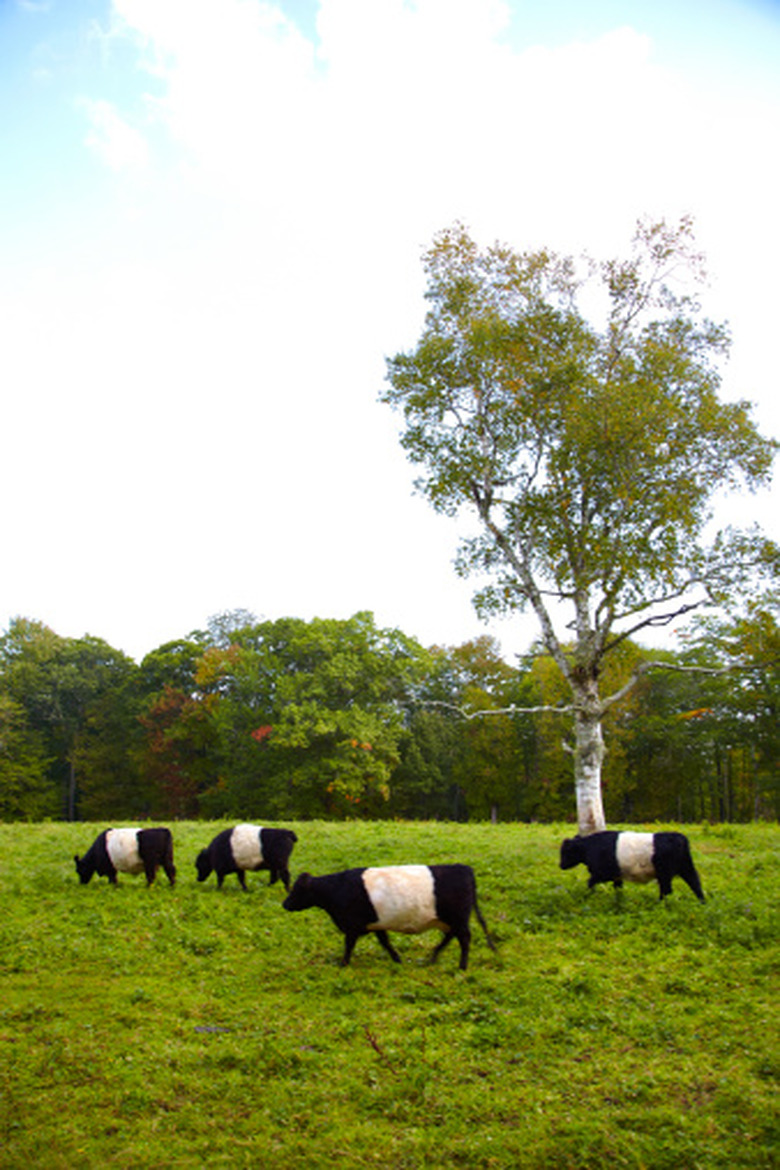Five Facts On Terrestrial Ecosystems
Ecosystem is a term used to describe the living and nonliving things that make up a geographical area. A terrestrial ecosystem is simply land-based. The other kind of ecosystem is known as an aquatic ecosystem. There are four types of terrestrial ecosystems: taiga, grassland, tundra and temperate deciduous forest.
Temperate Deciduous Forest
The temperate deciduous biome occupies a small portion of southern Ontario and a large portion of the eastern part of the United States. The main plant species in this biome are broad-leaved deciduous trees and the precipitation is an average of 28 inches annually. The soils in this region are rich and very easily converted to agricultural use.
- Ecosystem is a term used to describe the living and nonliving things that make up a geographical area.
- There are four types of terrestrial ecosystems: taiga, grassland, tundra and temperate deciduous forest.
Grasslands
Grasslands are lands which are dominated by grasses with few shrubs and even fewer trees. There are two types of grasslands, the tropical grasslands or savannas and the temperate grasslands. The term savanna is used to describe grassland which has a few scattered trees and they are located in Australia, Africa, South America and India. Temperate grasslands have only grass and no trees. They are located in Hungary, Argentina, Uruguay, the steppes of the former Soviet Union and the prairies and plains of Central North America.
Taiga
The taiga or boreal biome is the largest in the world. The term taiga is the Russian word for forest, and this biome stretches from North America through Eurasia. The taiga winters are very cold while the summers are humid, warm and rainy. The dominant trees in the taiga are coniferous or evergreen trees which have a waxy layer that gives them some protection from the cold and from drying out. The main seasons are winter and summer while the spring and autumn seasons are very brief. There are few plant and animal species in the taiga, in comparison to the other biomes, due to the unfriendly conditions.
- Grasslands are lands which are dominated by grasses with few shrubs and even fewer trees.
- The dominant trees in the taiga are coniferous or evergreen trees which have a waxy layer that gives them some protection from the cold and from drying out.
Tundra
The tundra biome is the coldest of all the biomes. It is known for its vast treeless plains, exceedingly low temperatures, low precipitation and frost-laden landscapes. The term tundra is from the Finnish word tunturi, which means treeless plain. There are two types of tundra, the Arctic tundra and the Alpine tundra. The Arctic tundra is located in the northern hemisphere while the Alpine tundra is located on the top of mountains throughout the world where conditions mimic that found in the northern hemisphere.
Threats
There are threats to the terrestrial ecosystems mainly due to the activities of man. The United Nations Environment Programme (UNEP) reports that in the years between 1990 and 2005, deforestation averaged about 13 million hectares annually. The report states that we are losing the equivalent of 18,000 soccer playing fields daily.
- The tundra biome is the coldest of all the biomes.
- The Arctic tundra is located in the northern hemisphere while the Alpine tundra is located on the top of mountains throughout the world where conditions mimic that found in the northern hemisphere.

